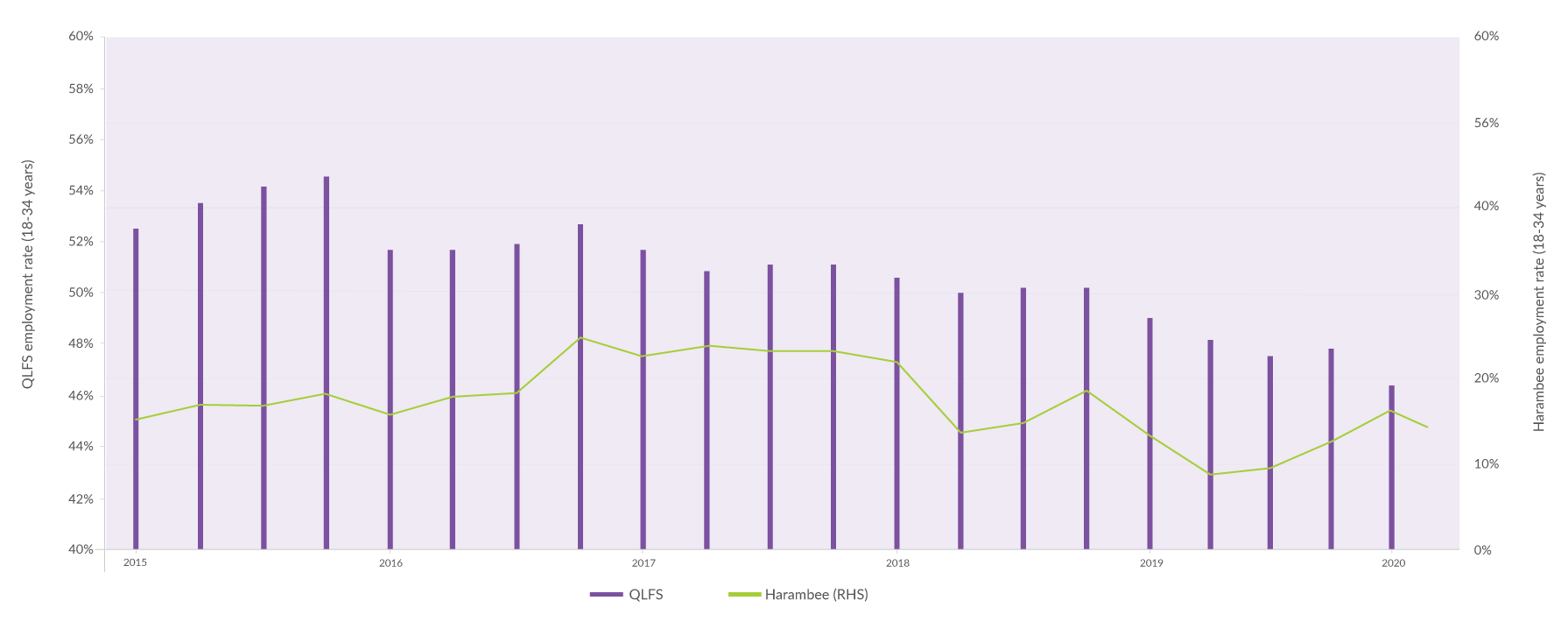

SA Youth connects young people to work and employers to a pool of entry level talent.
Are you a work-seeker?
This Youth Month edition of Breaking Barriers explores not just the dire challenges that young people face, but also their stories of resilience to overcome and to find new ways of moving forward.

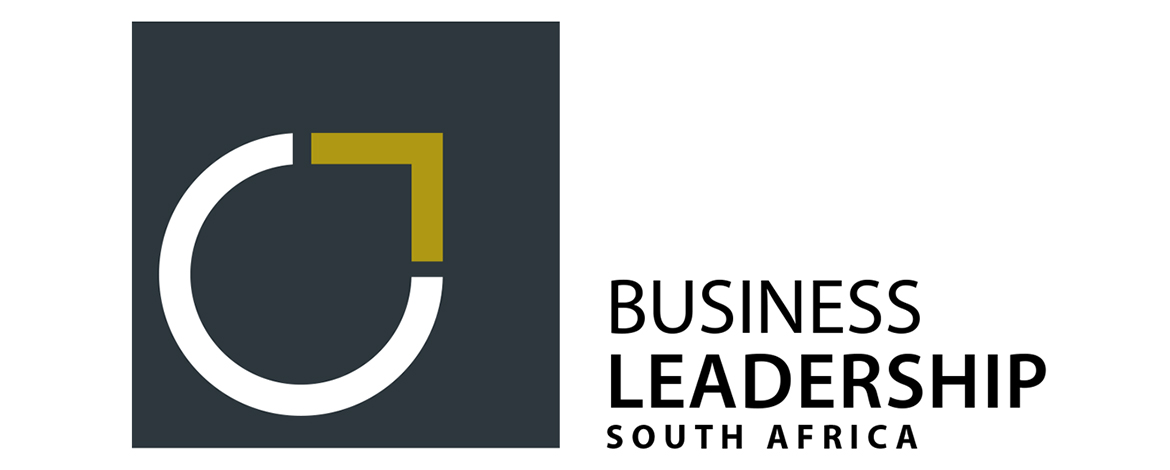


The most conservative estimate is that COVID-19 will strip between 1-2 million jobs from South Africa’s economy. We need swift and imaginative solutions to assist the economy to not only recover, but also rebuild towards an inclusive and resilient future.
During the lockdown, Harambee partnered with industry associations across a range of sectors to survey 2,500 organisations and develop an evidence base about what businesses need and what challenges they face – including concerns around loss of revenue, post-lockdown employee reintegration, and security and safety. This rapid market outreach with our partners identified the need to support small businesses in particular, as they try to navigate and access a range of support services and assistance measures.
Figure 1: The 5-step roadmap to reopening your business
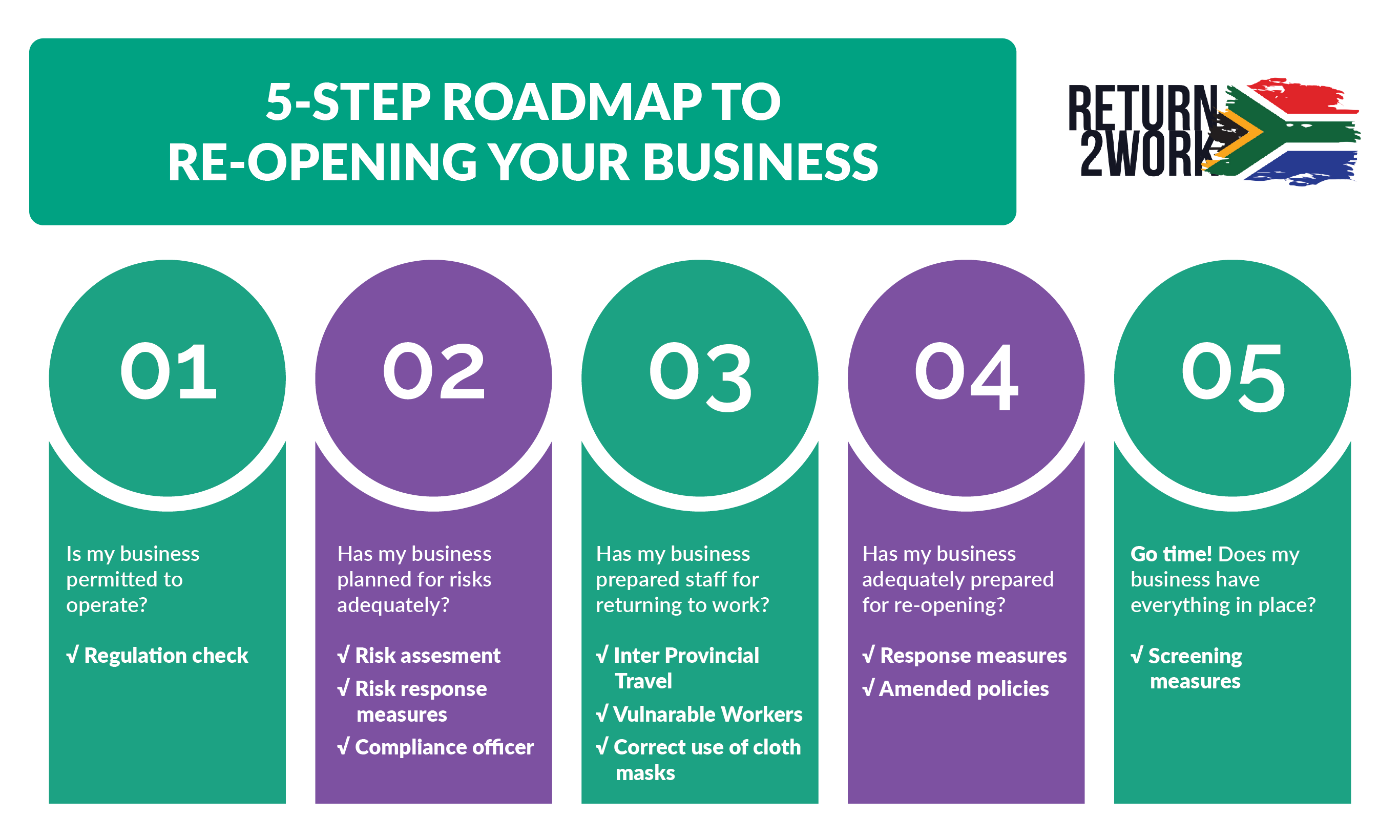
The formal sector, while a critical engine for productivity and growth, cannot provide all the answers to the growing numbers of the unemployed. It will be as critical to keep the formal sector afloat, as it will be to innovate on ideas to support and sustain the informal sector. Alongside safe return-to-work protocols for the formal sector, we can get informal traders online using innovations such as Gauteng’s SMME portal for preferential procurement and the informal business permit portal. Informal businesses must thrive with proper support, such as access to platforms and market linkages.
Harambee is partnering with government and civil society to innovate, coordinate and scale up existing community-based programmes for youth, who will be even more economically excluded following the current lockdown. The COVID-19 crisis highlights the critical importance of the informal sector in income generation across sectors.
Our research shows that of roughly 1.8million informal SMEs, slightly less than one-third are led by youth, and slightly more than a third are headed by women. The most common informal sector occupations for young men are taxi drivers and motor vehicle mechanics, and for young women—beauticians and street food vendors. Supporting these young men and women will help drive a more inclusive recovery—and without their livelihood strategies, the poverty gap could grow and inequality increase.
However, stories of youth resilience in the informal sector abound. Njabulo from Volksrust participated in a programme that helped him identify opportunities of work he could do in his community to earn an income.
During the lockdown, Njabulo used his Wi-Fi router to sell internet connectivity in his community—identifying the surge in demand for connectivity which will likely not reduce after lockdown. Thabang from Durban has a textile business, and recently procured a sewing machine to make cloth masks and generated over R3000 in income. Partnerships with civil society organisations are needed to roll out interventions like the ones that enabled Njabulo and Thabang to generate income quickly.
Figure 2.1: SMEs in South Africa’s informal sector
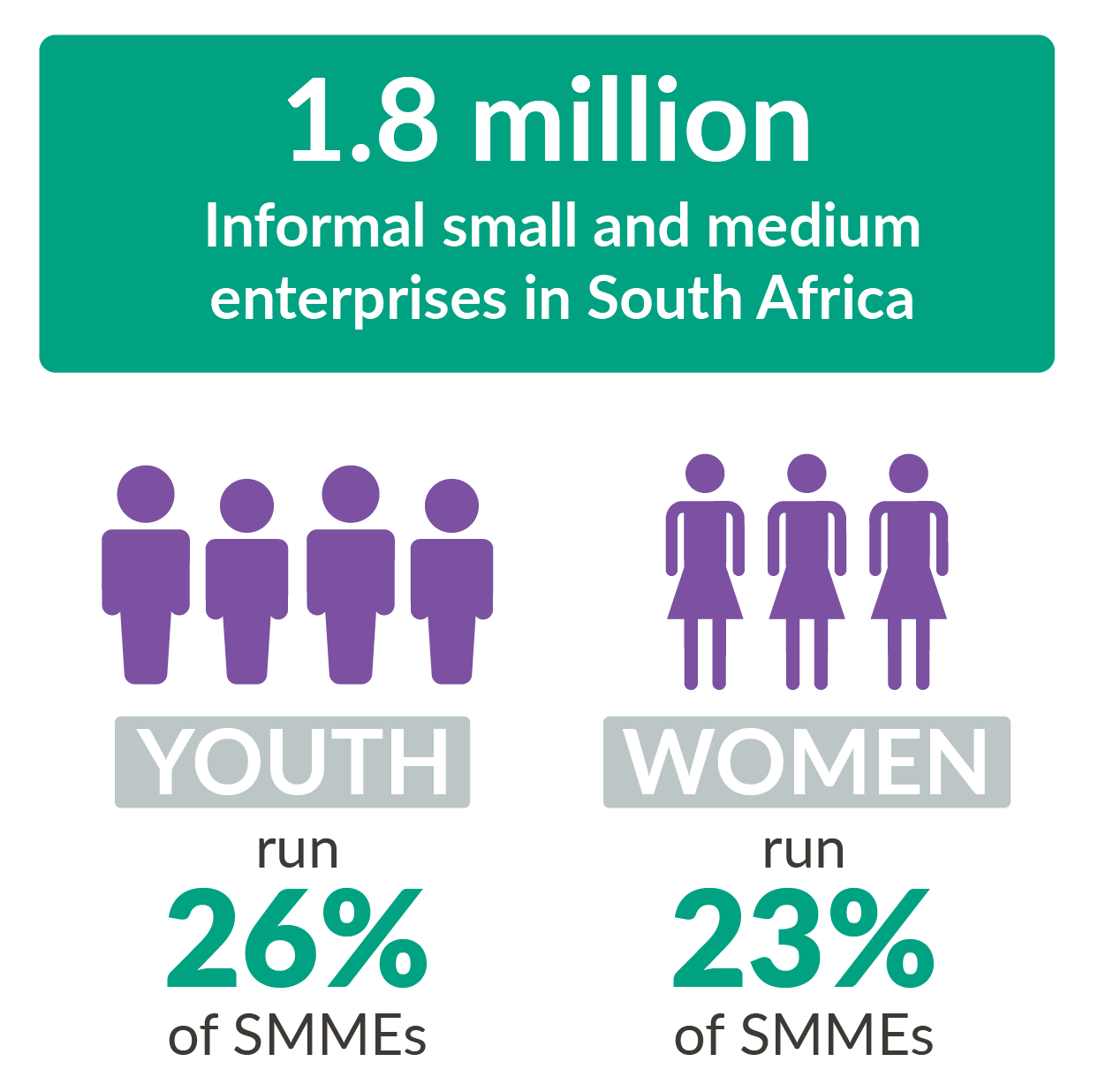
Figure 2.2: Informal youth enterprises can increase self-sufficiency
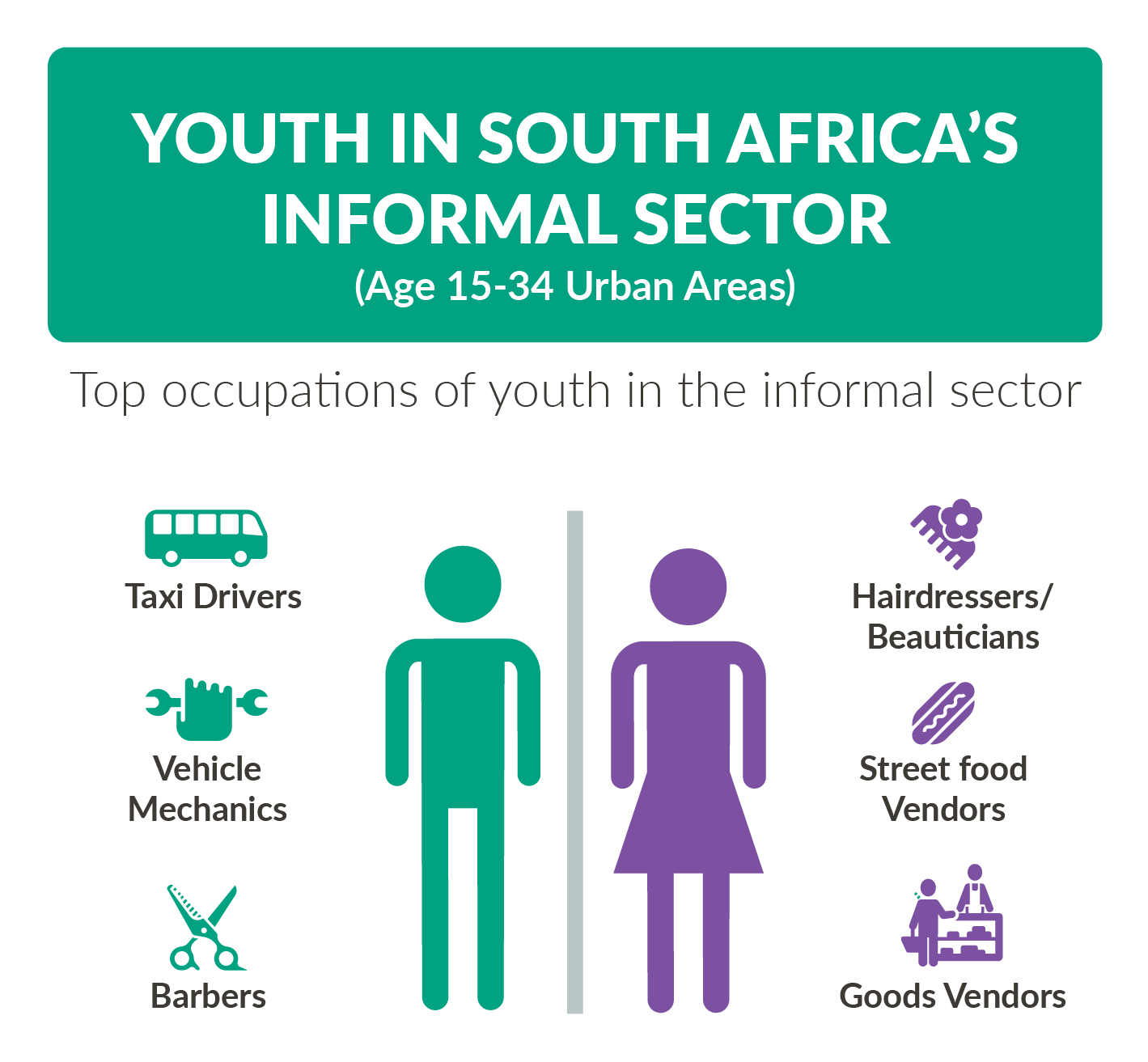
During the first three weeks of South Africa’s lockdown, Harambee launched a campaign with partners to reach 3 million young people. We have engaged with nearly 5 million youth since and our youth voices report tracks the pulse of what young people are sharing as they manage the COVID-19 pandemic and lockdown.
Access to data has emerged one of the most significant barriers to equality during the lockdown. South Africa has some of the highest data costs on the continent. When asked, young people told us because of limited cash they opt to purchase smaller data bundles more often, even if the price per unit is higher than a bulk data bundle purchase. On average young people say they are spending R360 per month on data (with some as much as R1800) for job searching, online applications, social media, research and academic work.
63% of young people we surveyed do not have an income—and many youth are using the childcare grant to support themselves.
Youth tell us that they are eager to learn, but that data barriers are significant. Young people need to stay busy and employable, and that they are struggling to make ends meet. By lowering (or even removing) data costs, young people are more readily able to access information, seek learning and job opportunities and engage with others.
We saw that when we changed our mobi-sites to become ‘data free’ young people’s online behaviour changed from logging in after midnight every evening when data was cheapest, to more even traffic during the day. Affordable data allows young people to be productive during daytime hours, with additive psychosocial benefits as well as giving them access to online communities amidst physical distancing.
We have to continue to lift up youth voices to ensure resilience and recovery, and to provide young people with the opportunities to build their skills and stay positive. If we amplify the voices of young people, they will help lead us out of this crisis.
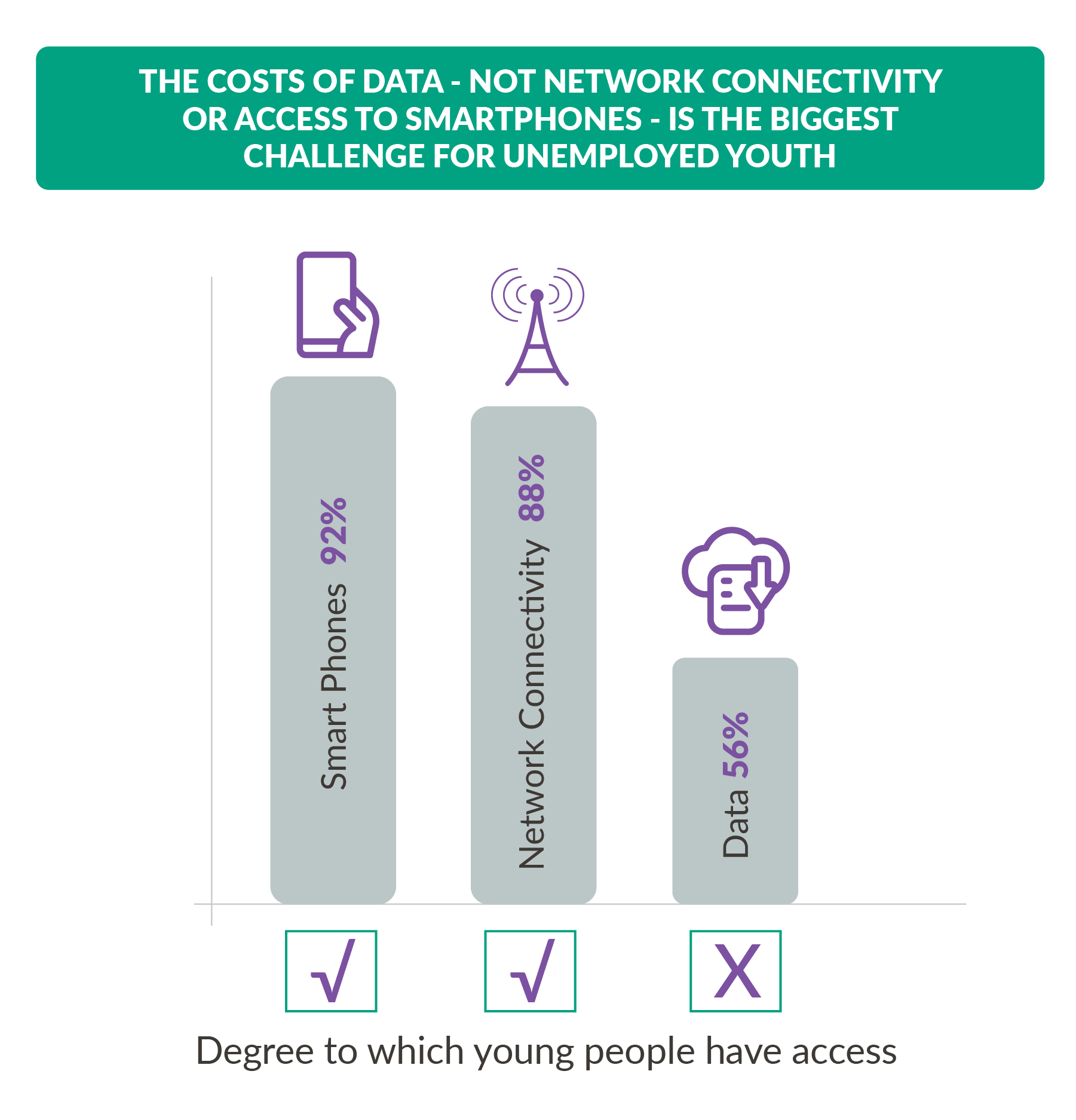
The unemployment rate at the end of the first quarter of 2020 stands at 30.1%; the highest that it has ever been and it is still yet to reflect the impact of the COVID-19 lockdown. Similarly the proportion of young people working is the lowest it has ever been in recent history – it is over 2 percentage points lower than what it was a year ago, and more than 5 percentage points lower than five years ago. Significantly over the last five years the labour force in this age group has grown by about 800,000 people, but current employment levels are substantially lower (by about 340,000 people) than they were five years ago.
Harambee data suggests about a 20% decrease in employment amongst young people in our network during lockdown. If this pattern is generally representative for youth employment in South Africa, then we estimate that approximately 880,000 young people may have lost their jobs and that employment rates may have fallen to less than 40% in this quarter.
